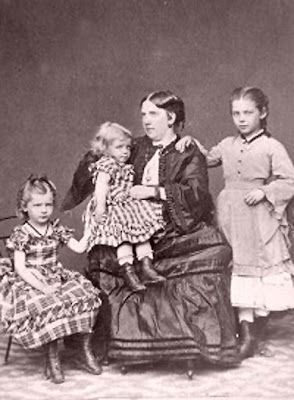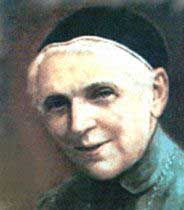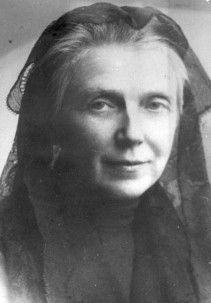Why pray the Rosary every day for a year?
Each time the Blessed Virgin has appeared-- whether it be to Saint Bernadette Soubirous at Lourdes; to Lucia, Jacinta, and Francisco at Fatima; or to Mariette Beco at Banneux-- she has asserted the importance, saving grace, and power of praying the Holy Rosary on a daily basis. Based upon her words, the Rosary is penance and conversion for sinners, a pathway to peace, an end to war, and a powerful act of faith in Jesus Christ. Pope Paul VI presented the Rosary as a powerful means to reach Christ "not merely with Mary but indeed, insofar as this is possible to us, in the same way as Mary, who is certainly the one who thought about Him more than anyone else has ever done."
To show us how this is done, perhaps no one has been more eloquent than the great Cardinal Newman, who wrote: "The great power of the Rosary consists in the fact that it translates the Creed into Prayer. Of course, the Creed is already in a certain sense a prayer and a great act of homage towards God, but the Rosary brings us to meditate again on the great truth of His life and death, and brings this truth close to our hearts. Even Christians, although they know God, usually fear rather than love Him. The strength of the Rosary lies in the particular manner in which it considers these mysteries, since all our thinking about Christ is intertwined with the thought of His Mother, in the relations between Mother and Son; the Holy Family is presented to us, the home in which God lived His infinite love."
As Mary said at Fatima, "Jesus wants to use you to make Me known and loved. He wishes to establish the devotion to My Immaculate Heart throughout the world. I promise salvation to whoever embraces it; these souls will be dear to God, like flowers put by Me to adorn his throne."
“If only I knew how to love, to burn and
consume oneself in love”
Today, May 29, we celebrate the feast day of
Saint Julia Maria Ledóchowska, Maria Ursula of Jesus (1865-1939), Foundress of
the Institute of Ursuline Sisters of the Sacred Heart of Jesus in Agony. Throughout her life, during a difficult
political period, including the First World War, Julia maintained a constant
focus on helping the poor, displaced, and forgotten. When questioned about her political views, often at risk to her
own life, she simply and repeatedly replied, “My policy is love.”
Born in Austria, Julia was born into a
privileged family, the daughter of a Polish count and a Swiss noblewoman. She
was one of five children born into the family.
Her elder sister, Blessed Maria Teresa Ledóchowska, founded the
Missionary Sisters of Saint Peter Claver and is affectionately known as the
“Mother of Africa.”
 |
| Julia (at left), her mother, and sisters |
Julia’s uncle, the Cardinal Mieczyslaw
Ledóchowski, the Primate of Poland, was persecuted and imprisoned for his
opposition to the policies of the Prussian “culture war.” For this reason, and for reasons of
finances, Julia’s father moved the family back to his native Poland, where he
fell ill. Before his death, he gave his
daughter his blessing to enter the Convent of Ursuline Sisters in Krakow. Taking the name of Maria Ursula of Jesus,
she dedicated herself to service of those in need. Sister Maria Ursula was especially drawn to youth, specifically young
women who were in need of education.
She founded the first Polish residence for female university students,
and both watched over them and assisted them in their spiritual and academic
studies.

Sister Maria Ursula became prioress of the
convent in which she lived, and later received a request from Monsignor
Constantine Budkiewicz, a Polish nobleman living and pastor of Saint
Catherine’s Church. His wish was for
Mother Maria Ursula to found a boarding school in Russia, for Polish girls
wishing to study in Saint Petersburg.
Having received approval from Pope Saint Pius X, she traveled to Russia
and founded a convent there to work among Catholic immigrants. Given the state of Russian politics at that
time, the nuns wore lay clothing, and conducted themselves appropriately, but
were under constant threat and surveillance by the Russian secret police.

As World War I dawned, Mother Ursula was
expelled from Russia, given her Austrian birth. Monsignor Budkiewicz was eventually martyred for the faith,
during the fall and renaming of Saint Petersburg as Leningrad. Having been expelled from Russia, Mother
Ursula fled to Sweden. There, she
organized relief efforts for war victims, charitable enterprises for those
(like herself) living in exile from Poland.
She further founded a monthly Catholic newspaper.

In 1920, Mother Ursula and her growing
community made its way back into Poland, bringing with her dozens of orphaned
youth. Upon their return, Mother Ursula
found that her community had developed a separate and unique identity, mission,
and charism from the Ursuline community, given their exile and separation, and
as a result, she founded her own congregation:
The Institute of Ursuline Sisters of the Sacred Heart of Jesus in
Agony. Having obtained Vatican
approval, she dedicated herself and her congregation to “the education and
training of children and youth, and service to the poorest and the
oppressed among our brethren.”

From that time on, the Ursulines founded
congregations in working class towns, organizing a “Eucharistic Crusade” by
which to educate the factory workers and their families in the ways of the
faith. With tireless energy and faith,
Mother Ursula continued to lead her community until 1939, when she passed away
quietly at the general house of her community in Rome. Her incorrupt body
was translated to the Gray Ursuline
motherhouse in Pniewy, Poland in 1989. She was canonized in
2003 by Pope John Paul II. At her
canonization, the pontiff proclaimed:
“Mother Ursula Ledóchowska made her life
a mission of mercy for the most deprived. Wherever Providence took her,
she found young people in need of instruction and spiritual formation, poor,
sick or lonely people, battered by life in various ways, who expected of her
understanding and concrete help. In accordance with her means, she never
refused help to anyone. Her work of mercy will remain engraved forever in the
message of holiness, which yesterday became part of the whole Church.”

Today, the congregation founded by Mother
Ursula continues its work around the world, numbering at approximately 900 nuns
and 100 communities in 12 countries including Poland, Italy, France, Germany,
Finland, Belarus, Ukraine, Canada, Brazil, Argentina and Tanzania. Saint Ursula educated her sisters to love
God above all things and to see God in every human person and all creation. As
a shining example of faith and complete trust in the Lord, she demonstrated her
confidence through tireless work, constant smile, serenity of spirit, humility,
and the desire to live an ordinary life as a privileged path to holiness.















0 comments:
Post a Comment
Thanks for leaving a comment. If you wish to submit a prayer request, however, please do so above, using the "Contact" tab.